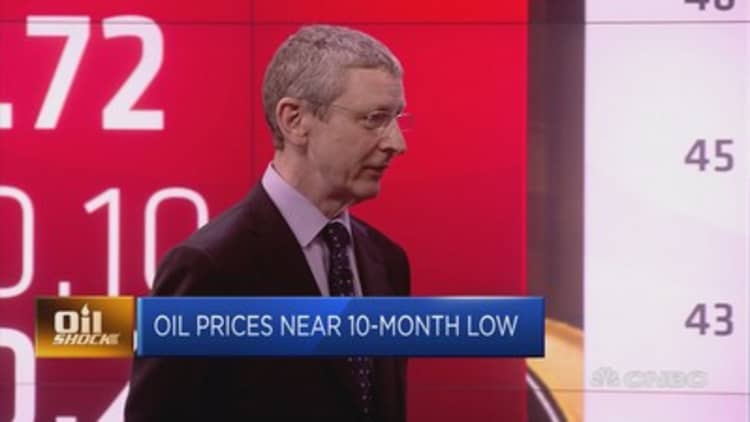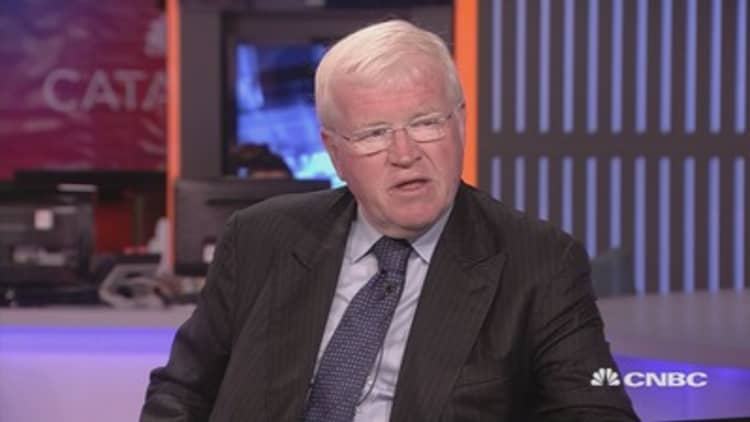
The OPEC-led production cut agreement extended last month until February 2018 is unlikely to survive beyond that, the head of European oil and gas research at Macquarie has warned.
Noting that members of the oil cartel were a "disparate bunch", Ian Reid told CNBC's Street Signs on Thursday that the key question was whether they could extend this agreement once again into 2019.
"I think that's going to be a very hard ask to be honest. We actually see this OPEC agreement breaking up towards the middle of next year. In that case, we're going to see a huge amount of extra oil on the market next year," Reid warned.
The inability of OPEC's efforts to bolster the oil price has a readily identifiable cause, he added.
"It's the volume of shale. It has risen quicker and more sustainably than most people were expecting even a few months ago…that knocks out pretty much all of what OPEC can do," said the sector specialist, revealing that Macquarie's price estimate has dropped to below $50 for the first time in a while, with the bank not expecting much of a recovery in 2019.

The key problem for the Saudis and other producers, asserted Reid, is that it's a zero sum game given that ever more shale producers are enticed into the market as the oil price rises.
"They (OPEC producers) can't get the price up to a level where they can keep the shale guys out of the game so unfortunately they're just chasing their tail at the moment," he concluded.
Agreeing that the swing producer is no longer OPEC but shale drillers, Ewen Cameron Watt, senior director at BlackRock, told CNBC's Street Signs on Thursday that the competition from the latter is now more formidable than before.
"They have managed to raise a lot more capital in the last 12-18 months so they can sweat this out for a bit longer," he explained.

Beaten down oil prices caught a break in Thursday trading after a weak start to the session, with WTI trading up 0.56 percent to $42.76 by 1:00 p.m. London time and Brent 0.78 percent higher at $45.17. This follows a brutal month for the commodity which has seen both oil benchmarks drop by around 17 percent in the past month.
Yet recent trading patterns suggests traders have been trying to price the asset rather than push it down extensively, surmised Cameron Watt.
"My sense is that we're probably in one of those $40 - $50 or $45-$55 ranging areas rather than we're looking at something going down into the mid-$30s," he said, adding "if that was wrong, there'd have to be a chronic increase in supply at a point of a very low price."
Turning to broader market implications, oil's weak recent trajectory and outlook is not incompatible with an optimistic view on stocks, Beat Wittmann, partner at Porta Advisors, told CNBC's Squawk Box on Thursday.
"Net-net lower prices are positive for G-7 countries and certainly for emerging markets where it's an important input factor…It takes off some pressure, of course, from interest rates and inflation rates as well, so I don't see that as negative as long as we don't go really much lower," said Wittmann.
"Low oil prices - as long as we have orderly markets - is quite positive," he concluded.


